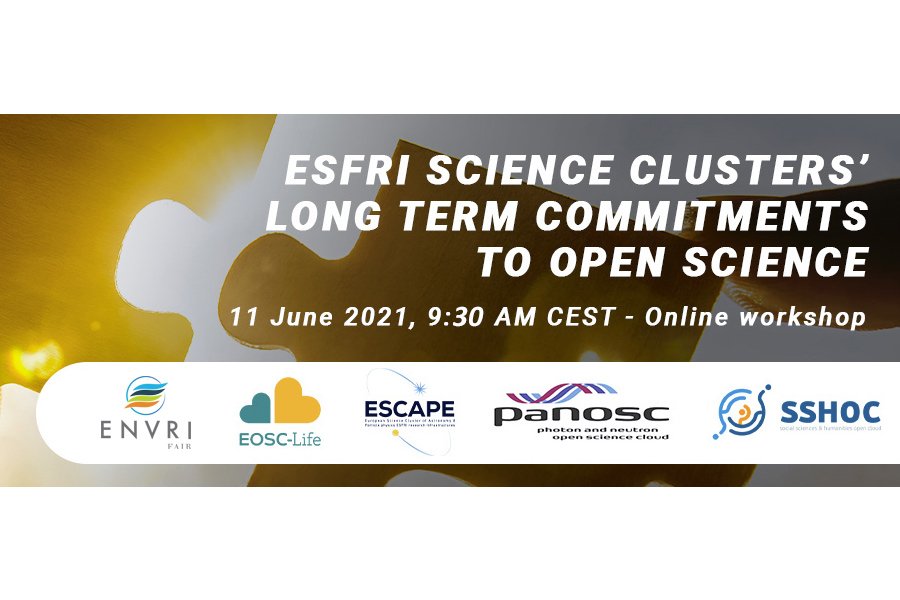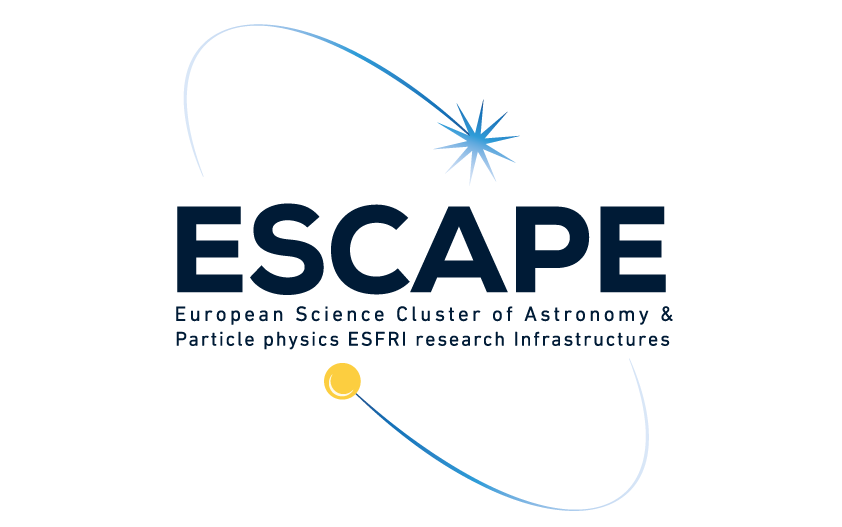

Online on 11 June 2021, this workshop aimed at addressing potential sustainable actions to consolidate the cluster work programmes as well as presenting to the European Commission, ESFRI and the EOSC Association a longer-term vision to support the uptake of Open Science by the global scientific community.
Open Science, a new modus operandi for Science
« Open Science is the new modus operandi for Science, stated Kostas Glinos, Head of Unit for Open Science at the European Commission, we need it to make Science more efficient, more reliable and robust, more responsive to societal demands and more trusted by society. Covid-19 illustrates both the necessity and success of practicing open science ». In practice, the European Commission’s commitment to open science includes open access publication, FAIR data, research and data management, reproducible results, open research infrastructure including European Open Science Cloud (EOSC).More than a technical challenge, it is a societal challenge. « We want to reform the science assessment system, added Kostas Glinos, in other words valuing sharing and collaboration rather than individual competing scientists ».
Current open science requirements under Horizon Europe involve open access to peer-reviewed publications, FAIR data and research results in a trusted repository under open licenses, with a constantly updated data management plan. The Research infrastructures will continue to support the development of EOSC with increased open access FAIR data, cross-disciplinary research facilitation & data interoperability exploitation.
Advancing Open Science also depends on the EOSC Association work to accelerate the creation of new knowledge, inspire education, spur innovation and promote accessibility and transparency. « The EOSC initiative will offer researchers a virtual environment with open and seamless services for storage, management, analysis and re-use of research data, across borders and scientific disciplines by federating existing data infrastructures, explained Marialuisa Lavitrano, EOSC Association Board of Directors vice president. EOSC is expected to serve two million researchers in Europe and progressively to expand its users-based to include the wider public and private sectors ».
An outlook for the future
The Science Clusters are powerful enabler of European research excellence as well as Open Science. « This first Cluster Workshop addressed an outlook for the future with an introduction to the programmes of the Science Clusters, their current structural value as well as their present and future collaboration actions, explained Giovanni Lamanna, ESCAPE coordinator and chair of the workshop. The five Science Clusters ensure the connection of the ESFRI research infrastructures with EOSC and aim at facilitating access of researchers to data and scientific results, accelerating discoveries, increasing scientific value by sharing data and more ».
The Science Clusters, ENVRI-FAIR, EOSC-Life, ESCAPE, PANOSC and SSHOC, are EU collaborative projects that were launched in 2019 to link ESFRI and other world-class Research Infrastructures (RIs) to the EOSC. The main impacts of the Science Clusters' work programmes are: improving researchers' access to data, tools and resources, leading to new insights and innovation for data-driven science both within and beyond the clusters' domains; creating a cross-border open innovation environment for FAIR (Findable, Accessible, Interoperable and Reusable) data management for economies of scale; developing synergies and raising the efficiency and productivity of researchers through open-science standards and thematic services. As important stakeholders of EOSC, the Science Clusters contribute to its development and its implementation.
ESFRI Science Clusters Position statement on expectations and long-term commitment in Open Science.
Together, they delivered A NEW POSITION STATEMENT with a formal explanation of the urgent need of European Commission to support a longer-term role of the five Science Clusters to provide content to the EOSC, to enhance researchers’ involvement in Open Science and to suggest potential cooperative pathways in the Horizon-Europe framework and along with the EOSC Association roadmap.
« The Science Clusters are engines for interdisciplinarity and have the potential to shape the EOSC agenda and the Horizon Europe framework evolution as well as operationalising the European Research Area, shared Giovanni Lamanna on behalf of the five Science Clusters.
This is a second position statement document (first position statement here - December 2019), written keeping in mind the various exchanges the Science Clusters had with the European Commission, the EOSC Association, the Directorates of the ESFFRI Research Infrastructures partners, and based on the constant cooperative work between the management boards of the five Science Clusters in the last 2 years. This paper is aimed at highlighting:
- Expectations of the clusters and the concerned research communities, pointing out a common structured vision and a series of suggestions for the future.
- Longer-term perspectives of the Science Clusters to operate as platforms supporting cross-disciplinary co-developments and open-science uptake.
- A more detailed analysis from each cluster, that is provided for completeness.
These fruitful discussions continued in the afternoon in a closed session between members of the European Commission, the EOSC Association Board of Directors, the ESFRI and ERIC forum chairs and co-chairs and the five Science Clusters.
Watch the whole workshop on YouTube
Views
27,972

